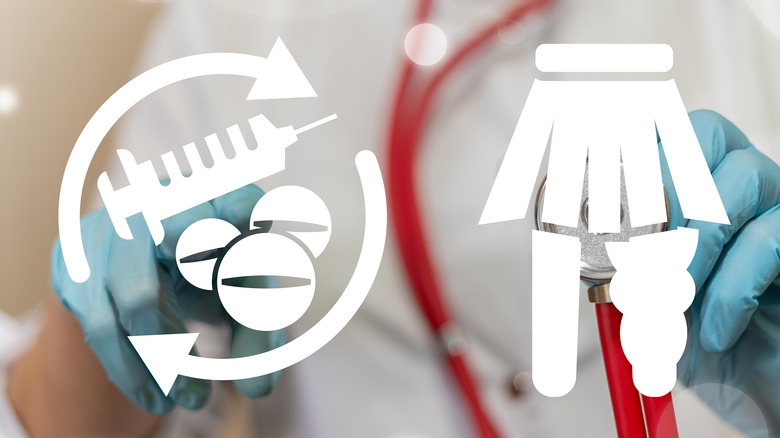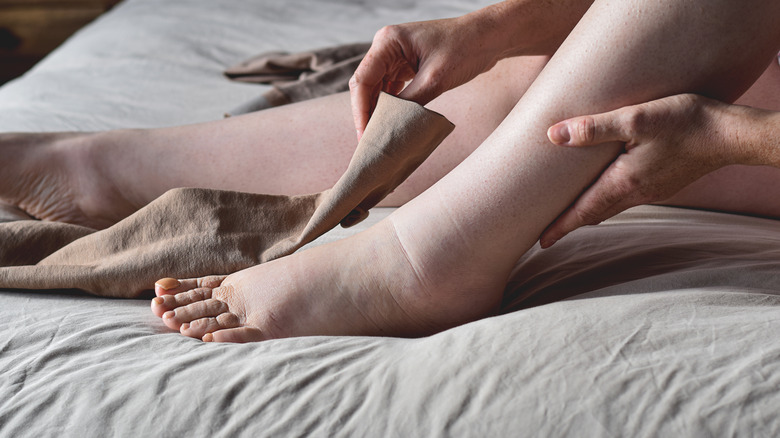What You Should Do If You're At Risk Of Developing Lymphedema
Lymphedema is a painful condition that causes tissue swelling because the lymphatic system cannot drain out protein fluid called lymph (via Mayo Clinic). It is caused by blockages in the lymph nodes, which are among the most integral parts of the lymphatic system that helps collect the drainable fluid from different parts of the body. Lymphedema swelling could affect your groin, arms, legs, abdomen, or chest wall, explains Mayo Clinic. You may be at high risk of getting lymphedema if you have had previous cases of swelling in your arms or legs, per Advanced Motion Therapeutic. Similarly, people who are obese, have cellular infections, or have sunburns may develop symptoms of lymphedema.
According to the National Health Service (NHS), lymphedema may cause various signs such as recurring skin infections, fluid leakage from different regions, ache in the swollen parts, skin tightness, skin folds, warts development on the affected skin, and difficulty moving the swollen limbs. You may also face problems while donning clothes or wearing watches or jewelry. NHS also recommends getting treated for lymphedema right away. Otherwise, it could worsen with time and decrease your quality of life.
What to do if you're at risk for lymphedema
Luckily, there are several steps you can take to prevent the worst symptoms of lymphedema. According to Leukemia and Lymphoma Society, you may want to avoid wearing tight clothes, shoes, or jewelry as it might worsen the symptoms. Moreover, they suggest avoiding lifting heavy items, especially if the lymphedema has affected your arms. You may also want to avoid getting tattoos as wounds could increase the risk of infections.
In addition, the NHS recommends not taking blood pressure from the affected regions. It's also necessary to use antiseptic creams to treat wounds and cuts. Lymphedema risk patients should also use SPF sunscreens outdoors as the skin is extra sensitive in this condition and may be susceptible to cancer. You should also try to keep the skin hydrated and moisturized to reduce irritation and dryness. NHS further suggests avoiding baths with steaming hot water as it could aggravate the condition.
The American Cancer Society recommends maintaining a healthy weight. Obesity could increase your risk of lymphedema. If you want to shed some pounds, the best way to do so is by doing regular exercises such as walking, jogging, swimming, or yoga.


